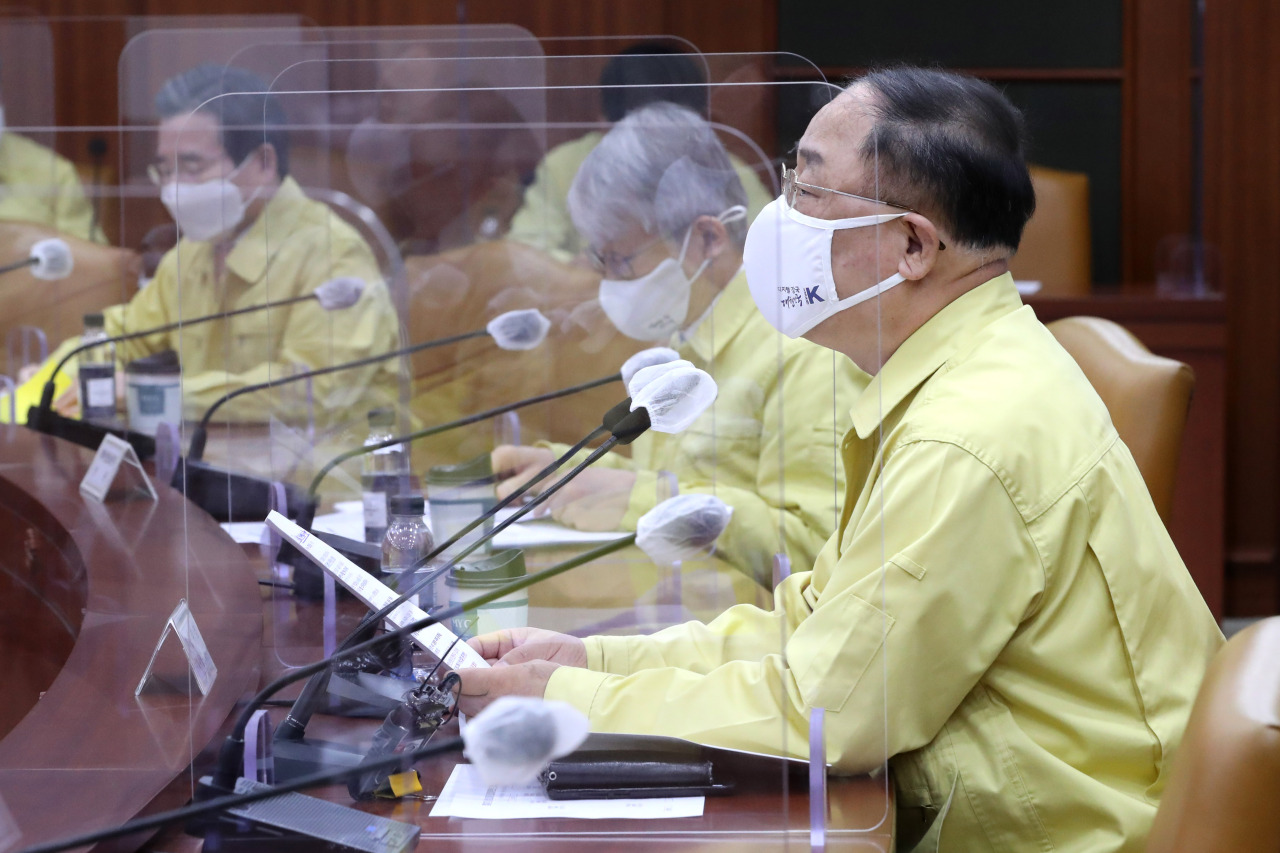South Korea will pursue quarantine-free, international travel agreements with other countries and lift other virus-related restrictions to prop up the aviation industry struggling to survive amid a sharp fall in air demand.
“The country will push ahead with the signing of ‘travel bubble’ agreements for people to travel without restriction on the basis of the coronavirus situation (suitable for such pact),” Finance Minister Hong Nam-ki said during an emergency economic meeting Wednesday.
Talks are underway but the Transport Ministry declined to reveal which countries they are negotiating with, citing the sensitivity of the issue.
A travel bubble is a partnership between two or more cities or countries with similar levels of COVID-19 cases that allows for a two-way, quarantine-free travel for those who have proof of a negative coronavirus test result.
With the rollout of COVID-19 vaccines and daily new coronavirus cases falling back below 500, the country is seeking ways to boost inbound and outbound tourism without ruining its virus containment efforts.
“The aviation industry desperately needs support to maintain its competitiveness as it is a core sector in charge of export logistics and is where as many as 200,000 people work for including related industries such as tourism,” Kim Sang-do, deputy minister for civil aviation at the Transport Ministry, said during a press briefing.
According to the minister, the government will launch a pilot program for a mobile application-based “travel pass” which enables users to show COVID-19 test certificates in digital form.
International travelers will be allowed to board “flights to nowhere” -- inbound, non-landing scenic trips that allow passengers to tour the country without entering. So far, only Korean airlines have been permitted to offer the sightseeing services to local residents only.
Such measures came as the number of international air travelers to Korea plunged nearly 98 percent in the second quarter from a year earlier despite the government’s support for the industry.
To help the struggling sector stay afloat, the state will extend a reduction in fees airports charge airlines until the end of June this year while considering injecting additional liquidity into low-cost carriers if they experience a temporary cash crunch.
Also discussed at the meeting were measures to sharpen competitiveness of the service industry that has potential to contribute added value and job creation to the economy.
The government has proposed a goal of raising the services sector‘s share of GDP from 60 percent to 65 percent and create 300,000 new jobs by 2025.
To this end, it will support the construction of a smart digital system of 100,000 mom-and-pop shops and 1,350 SME businesses to implement automation such as digital payment solutions.
The industry-wide digital transformation will help adding new jobs for young workers in the information and communication technology sector, First Vice Finance Minister Kim Yong-beom said.
The government will guarantee some 2 trillion won ($1.78 billion) in funding to be provided to service companies that embrace digital transformations through use of big data and artificial intelligence.
Eight sectors including tourism, health care, logistics and finance will receive intensive support to improve their high value added services.
A 300 billion won-fund will be created to foster tourism venture firms. By 2025, the number of smart logistics centers, which use the Internet of Things and artificial intelligence, will be expanded to 250.
To achieve its goal of exporting $10.6 billion worth of agricultural and seafood products this year, the government will actively seek to adopt contactless and digital trends in the global trade scene, which have been accelerated by the pandemic.
It plans to set up 10 online stores dedicated to Korean agri-fishery products on top global online shopping sites to help some 300 firms to use the platforms for their e-commerce business.
The country’s export of agricultural and seafood products hit an all-time high of $9.89 billion in 2020 on the back of a rise in demand for health, fermented and convenient foods coupled with marketing strategies linked to the Korean Wave, the ministry said.
By Park Han-na (
hnpark@heraldcorp.com)








